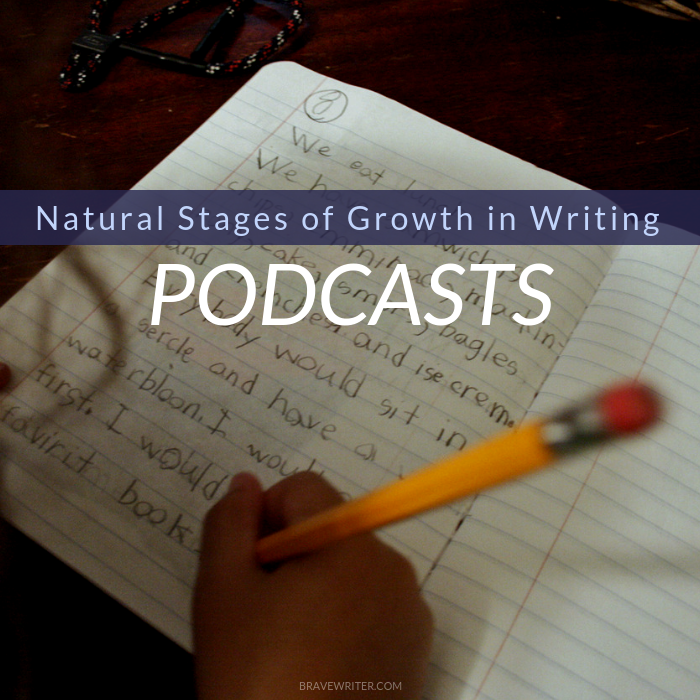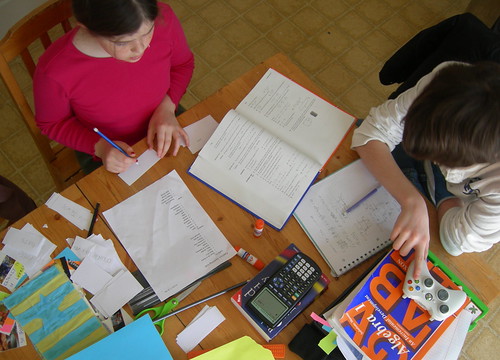
Understanding a young writer’s stages of growth is vital. In my years of working with families, I’ve found that it is much more effective to look at how writers grow naturally than to focus on scope and sequence, grade level, ages, or the types of writing that ought to be done in some “established sequence.”
The different stages are briefly explained on the Brave Writer website, but check out the following podcasts for a more in depth look. Just click on the titles below to be linked to each page.
Also, the age ranges are only a suggestion. Identify the stage that best matches your child’s current skill set. Start where your child is.
Beginning Writers (Ages 5-7)
Does your child excitedly share stories and experiences but is blocked when she tries to write them down? Does his writing not reflect his sophisticated vocabulary? Do they struggle with handwriting or spelling? Before kids can write their thoughts and ideas, someone else needs to do it for them!
Emerging Writers (Ages 8-10)
Focuses on the most overlooked stage of development in the writing journey and accounts for the development of writer’s block and writing resistance in kids. If you successfully navigate the Partnership Writing phase, your kids will not be plagued with the “blank page, blank stare” syndrome. You’ll both know how to create writing and what role you each play in the process.
Middle School Writers (Ages 11-13)
The stop and start stage of writing. One day the student gets a detailed story to paper. The next week, she complains that she hates writing. In this podcast we look at how you can create the conditions for growth and joy in writing with your kids.
High School Writers (Ages 14-18)
This is the time when your students are making the somewhat treacherous journey from adorable, fact-centered child to rhetorical imagination (the awareness that the world is inhabited by unlimited numbers of perspectives). We talk about your role in the “Big Juicy Conversations” you need to be having with your fledgling thinkers, and we discuss the high school writing life, on into college.
























